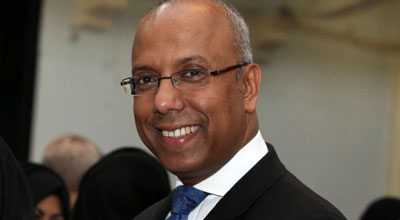Gulf celebrates Eid with host of traditions
 Following a month of fasting, prayer and charity, the end of the holy month of Ramadan is marked by a three-day celebration which kicked off on Friday, the first day of Eid al-Fitr for many Muslims.
Following a month of fasting, prayer and charity, the end of the holy month of Ramadan is marked by a three-day celebration which kicked off on Friday, the first day of Eid al-Fitr for many Muslims.
The big day can only be confirmed a night before as it depends on sightings of the moon and on Thursday night, Gulf moon sighting committees confirmed that Eid would begin on Friday in the Gulf . Considered one of the biggest events in the Islamic calendar, the world’s estimated 1.6 billion Muslims take part in various festivities.
While celebrations vary from region to region, they all share a single thing in common: it marks a time for families and friends to get together, share a meal or two, exchange gifts, and give thanks.
From the UAE to Bahrain, and Saudi Arabia to Oman, residents take part in fun traditions, with plenty of things to do for both kids and adults. Here are the most common Eid al-Fitr practices in the region.
Preparation
During the last few days of Ramadan, it’s customary to prepare for Eid al-Fitr. For example, families go shopping for new clothes as everyone is expected to wear something new or look very smart during this holy time. It’s especially exciting for tweens and teenagers, as they get to usually choose three outfits!
For the adults, women get together to decorate their hands and feet with pretty henna designs, while men go to the barber for a shave and haircut.
At home, it’s important to clean ahead of Eid, and so many will spend hours preparing the home ahead of any visitors staying over. Cleanliness extends beyond the residence; you’ll find that plenty of car owners also wash their car the evening before Eid. So if you want to avoid long queues at the petrol station, perhaps wash your car two days before!
Eid Prayers
The first morning of Eid al-Fitr is always the strangest, as it marks a change of routine after 30 days of fasting. The day begins with a pre-dawn prayer followed by a breakfast of coffee or tea, and Arabic sweets and biscuits. In the early morning – around 6.30am – everyone dresses and heads over to the mosque to attend the special Eid prayers. This is a wonderful time as it unites Muslims in their celebrations, and its not uncommon to see children walking around with bags of sweets and distributing candy to all the attendees.
Gifting and Eideya
After prayers, everyone heads home to spend time together ahead of the special Eid lunch. One of the most important aspects of Eid – for the little ones at least – is the receiving of ‘Eideya’, which is a monetary gift. Young children usually line up in front of each adult family member, and receive their cash gifts. Other families pass out gift bags with some money, sweets and toys, for instance.
Eideya tends to not last for very long, as once the kids have their loot, they venture out to their nearest shop to buy some treats. In the smaller villages where there are more neighborhood shops, they can get more for their money thanks to the shopkeepers taking part in the Eid celebrations by giving out special gifts along with every purchase. Two chocolate bars for the price of one? Yes, please.
Charity
The act of giving to the less fortunate is immensely important during Ramadan, but it shouldn’t be neglected once the holy month is over. During Eid, it’s common for those who are well off to buy food staples – such as rice, ghee, oil, sugar…etc. – in bulk and leave them anonymously at the doors of those in need. Other residents would cook large quantities of food and host a free table outside their house so that no one goes without a meal.
Food, glorious food
Nothing beats a wonderful Eid lunch, and traditionally families enjoy meat dishes, such as slow cooked lamb or grilled kebabs for instance. Biryani is also a very popular choice.
Some households organize a dish party where every attendee brings an appetizer, main course or dessert and then everyone mixes and matches.
Vibrant Nightlife
The majority of outings tend to take place in the evening – and even more so these years thanks to Eid al-Fitr arriving during the hot summer months. GCC residents love a good fireworks show, so you’ll never be void of options in the region.
Meanwhile, some cities – such as Doha and Dubai for instance – host special Eid concerts, featuring some of the biggest names in Arab music, including Nancy Ajram, Hussein al-Jasmi and Mohammed Assaf.
Whether it’s your first Eid in the region, or you’ve always celebrated here, the Muslim community will agree that it’s important to get into the spirit and enjoy what you have. Eid Mubarak!





